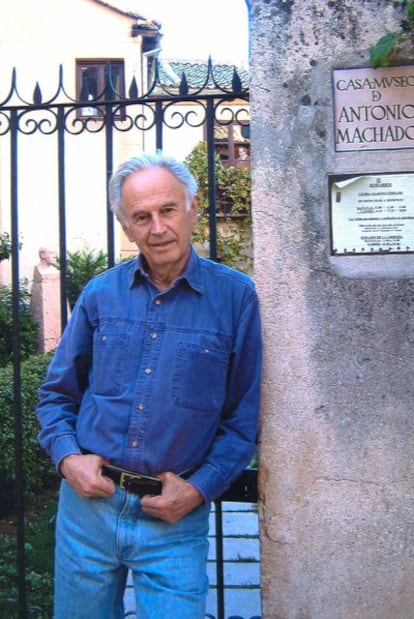Obituary: Thomas Mermall, who became a leading Hispanist by chance
A specialist in the history of Spanish contemporary thought, he was the author of a collection of books, articles and essays that comprise a bright journey across Spain’s intellectual life
Thomas Mermall, a professor of Spanish language and literature who taught at New York University, died last Thursday of a pancreatic cancer in Manhattan. Mermall, a specialist in the history of Spanish contemporary thought, was the author of a collection of books, articles and essays that comprise a bright journey across Spain’s intellectual life after the philosopher José Ortega y Gasset.
Two of his leading works were The Rhetoric of Humanism and The Allegories of Power in Francisco Ayala, besides a superb critical edition of Ortega y Gasset's The Revolt of the Masses, which includes an analysis of the impact this book had in American culture. Miguel de Unamuno, Octavio Paz, Jiménez Lozano and Laín Entralgo are some of the leading men of letters whom the prestigious Hispanist dissected with great clarity.
Mermall was born in 1937 to a Jewish family from the Carpathian mountains, in an area that historical vicissitudes alternately made part of Czechoslovakia, Hungary and the Soviet Union. These days, his home town belongs to Ukraine. The volatility of his geographical bearings had a parallel in the linguistic disorientation that marked his childhood. The family spoke Hungarian, but neighbors also spoke Ruthenian and Yiddish. Little Thomas studied in Czech, and after his country was liberated from the Nazis, in Russian. As a 10-year-old exile in Chile he learned Spanish and studied Hebrew. All of these languages would later be displaced by English after he moved to the United States at age 13.
"Chance is the other side of destiny," was his life motto. Mermall, who was the only Jewish child in his region who escaped from the Nazis after they invaded his village in 1943, liked to insist that there was no place for resentment in his soul. His moving memoirs, Seeds of Grace, revisit his flight from the Nazis, his exile in Chicago, where he became a Hispanist, and his subsequent career as a university professor in New York.

Tu suscripción se está usando en otro dispositivo
¿Quieres añadir otro usuario a tu suscripción?
Si continúas leyendo en este dispositivo, no se podrá leer en el otro.
FlechaTu suscripción se está usando en otro dispositivo y solo puedes acceder a EL PAÍS desde un dispositivo a la vez.
Si quieres compartir tu cuenta, cambia tu suscripción a la modalidad Premium, así podrás añadir otro usuario. Cada uno accederá con su propia cuenta de email, lo que os permitirá personalizar vuestra experiencia en EL PAÍS.
¿Tienes una suscripción de empresa? Accede aquí para contratar más cuentas.
En el caso de no saber quién está usando tu cuenta, te recomendamos cambiar tu contraseña aquí.
Si decides continuar compartiendo tu cuenta, este mensaje se mostrará en tu dispositivo y en el de la otra persona que está usando tu cuenta de forma indefinida, afectando a tu experiencia de lectura. Puedes consultar aquí los términos y condiciones de la suscripción digital.









































